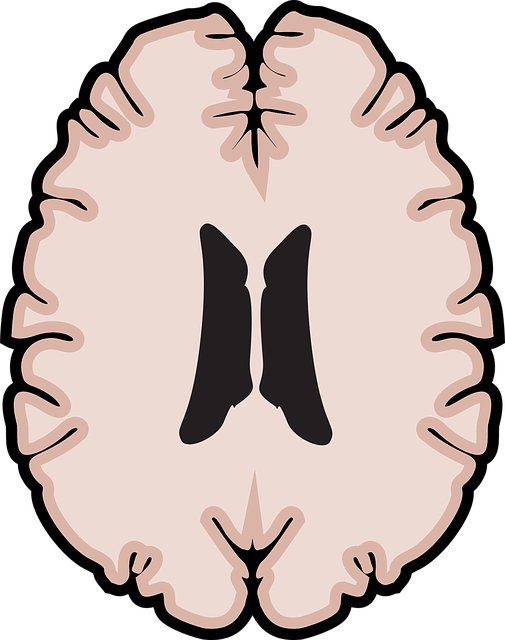Broomfield Major Life Transitions Therapy offers specialized support for individuals dealing with career shifts, relationship ends, or personal milestones, providing tools for enhanced self-awareness, resilience, and confidence. An effective mental wellness coaching program in Broomfield integrates evidence-based practices like CBT, DBT, and MBSR, personalized support, social skills training, and regular assessments to cater to diverse needs during transitions. Utilizing these methods, coaches track client progress through clear goals and feedback, fostering continuous improvement and making the program a game-changer for navigating life's challenges.
Mental wellness coaching programs are gaining traction as effective tools for personal growth. This article explores a structured approach inspired by Broomfield’s Major Life Transitions Therapy, offering a framework for coaches to guide clients through significant changes. We’ll delve into designing comprehensive programs, integrating evidence-based practices, and measuring success. By understanding these key components, mental wellness coaching can become a powerful instrument for enhancing well-being and navigability during life’s transitions.
- Understanding Broomfield's Approach to Major Life Transitions Therapy
- Designing a Comprehensive Mental Wellness Coaching Program
- Integrating Evidence-Based Practices for Effective Support
- Measuring Success and Continuous Improvement in Coaching Programs
Understanding Broomfield's Approach to Major Life Transitions Therapy

Broomfield’s Major Life Transitions Therapy offers a unique and transformative approach to addressing the challenges that often accompany significant life changes. This methodology recognizes that major transitions, such as career shifts, relationship endings, or personal milestones, can trigger a myriad of emotions, from excitement to anxiety, and sometimes even depression. By focusing on these pivotal moments in an individual’s life, the therapy aims to help clients navigate through their feelings and develop effective coping strategies.
The process involves a comprehensive risk assessment for mental health professionals, ensuring that practitioners are equipped to handle the emotional intelligence required when guiding individuals through turbulent transitions. Through this approach, clients gain enhanced self-awareness, build resilience, and discover ways to boost their confidence as they embrace new chapters in their lives. By fostering an environment of understanding and support, Broomfield’s therapy empowers individuals to not just survive but thrive during life’s most challenging shifts.
Designing a Comprehensive Mental Wellness Coaching Program

A comprehensive mental wellness coaching program should be meticulously designed to address a wide range of individual needs, especially during major life transitions in Broomfield. It’s crucial to incorporate various therapeutic approaches like Crisis Intervention Guidance to help clients navigate challenging situations effectively. The program must offer personalized support, focusing on improving coping mechanisms and fostering resilience. Through engaging activities and evidence-based techniques, coaches can guide individuals toward better mental health.
Integrating Social Skills Training is another vital component, as it enhances interpersonal relationships and promotes a sense of belonging. By combining these strategies with regular assessments and adaptable curriculum design, the coaching program ensures that each participant receives tailored Crisis Intervention Guidance and Social Skills Training to improve their Mental Wellness.
Integrating Evidence-Based Practices for Effective Support

Integrating evidence-based practices is a cornerstone of effective mental wellness coaching programs. Techniques such as Cognitive Behavioral Therapy (CBT), Dialectical Behavior Therapy (DBT), and Mindfulness-Based Stress Reduction (MBSR) have been rigorously studied and proven to support individuals navigating various challenges, including major life transitions. These therapies offer structured frameworks that empower coaches to provide tailored guidance and effective coping strategies.
By incorporating compassion cultivation practices, such as empathy and active listening, into the coaching process, professionals can foster a safe and supportive environment. This approach not only enhances the coach-client relationship but also encourages self-compassion, which is vital for managing stress and cultivating resilience during major life transitions. Mentoring individuals through Broomfield Major Life Transitions Therapy, while designing mental health education programs with an evidence-based lens, ensures that participants receive validated techniques to improve their mental wellness.
Measuring Success and Continuous Improvement in Coaching Programs

Measuring success and fostering continuous improvement are vital components of any effective coaching program, especially when addressing complex topics like major life transitions. In the context of Broomfield Major Life Transitions Therapy, coaches must employ tailored methods to quantify progress. This involves establishing clear goals and outcomes that resonate with clients’ unique journeys. By utilizing standardized assessment tools and qualitative feedback mechanisms, coaches can gain valuable insights into the program’s impact on participants’ emotional well-being promotion techniques, emotional regulation, and overall emotional intelligence.
Regular monitoring of these metrics allows for timely adjustments to coaching methodologies, ensuring the program remains relevant and responsive to individuals’ evolving needs. Continuous improvement also encourages a culture of learning within the coaching community, enabling them to stay abreast of emerging research and best practices in emotional intelligence. This holistic approach ultimately enhances the overall effectiveness of Broomfield Major Life Transitions Therapy, making it a game-changer in supporting folks through life’s challenging transitions.
Broomfield’s Major Life Transitions Therapy provides a robust framework for mental wellness coaching programs. By understanding this approach, designing comprehensive strategies, integrating evidence-based practices, and continuously measuring success, coaches can effectively support individuals navigating life changes. Utilizing Broomfield’s methodology ensures that coaching programs are not only impactful but also adaptable to the unique needs of each client, fostering resilience and personal growth.














